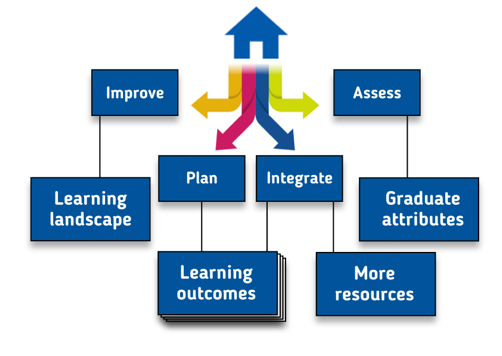
This Explorer was built to help you navigate the landscape of engineering ethics education. Choose a path depending on what you want to do: each path leads you through content such as learning outcomes, graduate attributes, and accreditation criteria, while also pointing you to supporting activities and resources linked to the content. Find your way using the map at top right or by navigating to the links in the menu bar.

Assessment is not only crucial for evaluating learning, but also for identifying ways to improve the teaching of ethics within engineering education.
Improve
Assess
This resource is a guide for academics who are interested in teaching ethics to engineering students. It aims to help you see how ethics could be integrated into an undergraduate engineering curriculum. The content in the explorer is subject to changes in context and should be customised to suit the various forms that an engineering degree can take. It is intended as a non-prescriptive resource – as a way of suggesting to educators how ethics might comprise a distinct theme in an engineering undergraduate degree. This ethics explorer is focused on the UK higher education context, but it may be adapted for use in other countries.
Here you will find guidance for assessing engineering ethics learning. Besides a guidance article, there are links to learning outcomes, graduate attributes, and an ethics learning landscape that shows you how it all fits together.
The study of engineering ethics within an engineering course helps students prepare for their professional lives. A specific advantage for engineering students who learn about ethics is that they develop clarity in their understanding and thought about ethical issues and the practice in which they arise.
The study of ethics helps students to develop widely applicable skills in communication, reasoning and reflection. These skills enhance students' abilities and help them engage with other aspects of the engineering programme such as group work and work placements.
Plan
Integrate